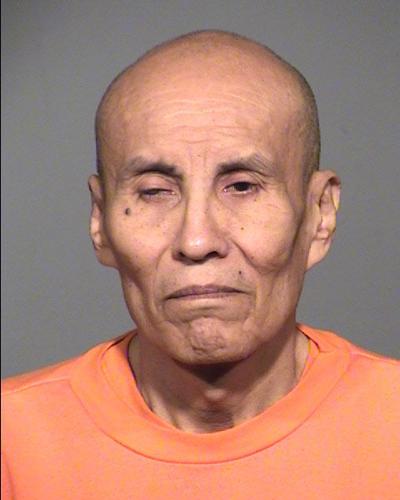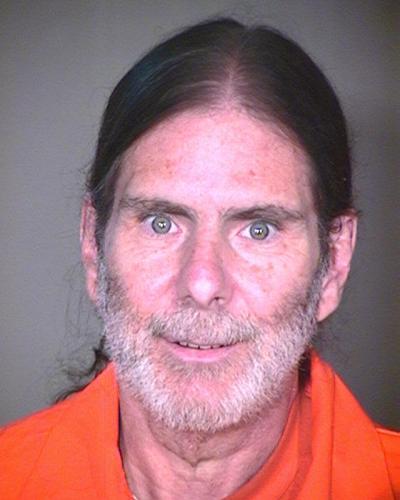PHOENIX — Arizona Gov. Doug Ducey says his self-proclaimed “pro-life” position covers only abortions and not executions — even those carried out in the name of the state.
And Ducey said Wednesday that he believes in the death penalty in “certain rare situations.”
The statements come as Arizona is set to conduct its first execution this coming week since 2014 and the issuance of a death warrant for a man convicted decades ago of killing a Tucson girl.
The state’s last execution occurred before Ducey was elected.
Arizona’s next execution is contingent on whether the Arizona Supreme Court concludes Clarence Dixon is mentally fit.
Meanwhile, a death warrant has been issued for a second Arizona inmate, Frank Atwood. He’s set to be put to death on June 8.
Atwood was convicted of the 1984 murder of Vicki Lynne Hoskinson in Tucson.
Hoskinson disappeared while riding her pink bicycle to mail a letter for her mother.
Authorities eventually tracked Atwood to Texas, where he was arrested on charges of kidnapping.
Murder charges were added after Vicki’s Lynne’s skull and some bones were found in the desert northwest of Tucson the following year.
More rulings expected
There is a possible last reprieve for Dixon.
His attorneys argue that Dixon cannot understand why he is being executed because of he is mentally incompetent.
That was rejected by Pinal County Superior Court Judge Robert Olson.
In a ruling released Wednesday, Olson said that Dixon is rational, a decision likely to be appealed to the Arizona State Supreme Court.
Dixon was convicted of the 1978 killing of Deana Bowdin, a student at Arizona State University. She was found murdered in her bed with a macrame belt around her neck and blood on her chest.
While police found DNA, they were unable to find a match.
The break came in 2001 when Tempe police matched it to Dixon. He was was serving a life sentence in prison for a 1986 rape at the time he was linked to Bowdin’s killing.
Dixon had lived across the street from Bowdin at the time of the murder, officials say.
Courts have so far rejected claims by defense attorneys that the state has not proven it has the lethal drugs necessary to conduct both executions in a safe fashion.
Strictly speaking, Ducey can’t do anything on his own to halt either execution.
That is because the legislature decades ago removed the unilateral power of governors to issues pardons or commute death sentence to life in prison.
That can occur only on the recommendation of the Board of Executive Clemency, something that has not happened in either case.
Ducey said he is just doing his job.
“I took an oath to uphold the constitution and enforce the laws,” he said.
But what does Ducey, who was raised Catholic, believe in his heart?
“I believe in certain situations, the death penalty is justice,” he said.
And the governor said he has been briefed on both cases by Anni Foster, his legal counsel.
“Each of these crimes is egregious beyond the pale,” Ducey continued. “This is the law and it will be completed.”
Innocence vs. justice
“When I talk about pro-life, I talk about the innocence of life at birth,” the governor told Capitol Media Services Wednesday.
“What you are talking about is justice that is coming 40 years delayed to families that suffered enormous grief at the hands of murderers,” Ducey said. “And the state is going to see that justice is done.”
The governor’s comments on the scope of his pro-life beliefs come on the heels of a leaked draft opinion from the U.S. Supreme Court indicating that a majority of the justices are willing to overturn Roe v. Wade. The historic 1973 ruling concluded women have a constitutional right to terminate a pregnancy.
That would return the decisions to each state.
And Arizona still has its pre-Roe law on the books that outlaws all abortions except to save the life of the mother.
When pushed for whether he wants an outright ban or the 15-week law to take effect, the governor said the courts will decide.







